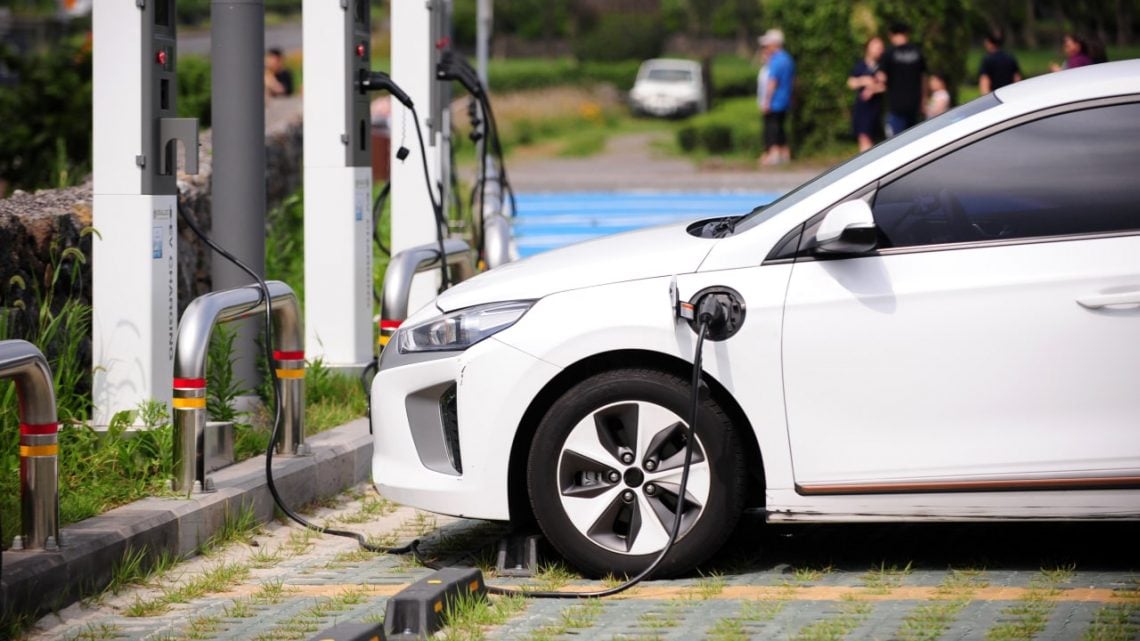Electric cars are reshaping business travel. With that in mind, the IRS’s standard mileage rate for 2025 is key for EV owners and employers. However, many drivers have been asking some important questions!
Are mileage reimbursements/tax deductions the same with electric vehicles as with gas-powered vehicles? How should businesses handle reimbursing their employees’ mileage when electric vehicles are in play?
Whether you’re a self-employed individual using an EV for business or a company looking to reimburse employees for their electric vehicle mileage, this guide will serve as a valuable resource.
Understanding Electric Vehicle Mileage
The concept of mileage for electric vehicles (EVs) diverges significantly from that of traditional vehicles. Instead of measuring fuel efficiency in miles per gallon (MPG), EVs use metrics like miles per kilowatt-hour (miles/kWh) and kilowatt-hours per 100 miles (kWh/100 miles).
Related: How to Calculate Your Mileage for Taxes or Reimbursement
Miles per kilowatt-hour indicates how far an EV can travel on a single kilowatt-hour of electricity. This measure highlights the efficiency of electric vehicles in converting electrical energy into distance.
Conversely, kilowatt-hours per 100 miles shows the amount of electricity an EV needs to cover 100 miles, offering a direct look at the vehicle’s consumption rate. These efficiency metrics for EVs stand in contrast to the MPG ratings of gasoline vehicles.
While MPG focuses on the volume of fuel consumed over distance, miles/kWh and kWh/100 miles emphasize energy use and efficiency. This shift reflects the fundamental differences in how electric and gasoline vehicles operate and their respective impacts on both the environment and operational costs.
Calculating Mileage Reimbursement for EVs
The formula for calculating mileage reimbursement for electric vehicles (EVs) primarily considers the electricity cost to operate the vehicle for business purposes. This is calculated by determining the cost of electricity per kilowatt-hour (kWh) and the vehicle’s efficiency in miles per kWh.
For example, if an EV achieves 4 miles per kWh and the electricity cost is $0.13 per kWh, the cost to operate the vehicle per mile is $0.0325 ($0.13/4). To find the reimbursement for 1,000 business miles, multiply the cost per mile by the total miles driven, resulting in a reimbursement amount of $32.50 for electricity.
Additionally, the IRS standard mileage rate for 2025, at 70 cents per mile, offers a simpler, yet comprehensive, method. This rate accounts for all vehicle-related expenses, not just electricity. For the same 1,000 business miles, using the IRS rate, the reimbursement would be $670. This method simplifies calculations and ensures consistency across different types of vehicles, including EVs.
Related: How Is The Standard IRS Mileage Rate Determined? | IRS Mileage Rate Breakdown Explained
Key Factors Affecting EV Mileage Reimbursement
Electricity Consumption
Electricity consumption directly impacts the reimbursement rates for electric vehicles (EVs). The efficiency of an EV, measured in miles per kilowatt-hour, dictates how much electricity the vehicle uses, which in turn affects the cost of its operation for business purposes.
Rate of Reimbursement
Reimbursement rates can vary significantly between different organizations. Some may choose to follow the IRS standard mileage rate, while others might calculate a custom rate based on actual electricity costs and vehicle efficiency, emphasizing the importance of understanding employer-specific policies.

Charging Costs
The cost of charging an EV plays a crucial role in determining reimbursement amounts. Factors such as the price of electricity in the vehicle owner’s area and whether the charging happens at public stations or home chargers, where rates may differ, can influence the overall reimbursement figure.
Tax Considerations
IRS guidelines provide a framework for mileage reimbursement, including rates and methods of calculation. However, tax laws and regulations can change, so it’s essential for both employers and employees to consult with tax professionals.
This ensures compliance and maximizes potential deductions related to the business use of electric vehicles.
Comparing EV Mileage Reimbursement to Gasoline Vehicles
Maintenance and Depreciation
Electric vehicles (EVs) typically incur lower maintenance costs compared to gasoline-powered vehicles. This is due to fewer moving parts and a less complex drivetrain. Depreciation factors also differ, with EVs often benefiting from longer lifespans of crucial components like electric motors, contrasting with the engine and transmission wear in gasoline vehicles.
Government Incentives
EV owners may qualify for government incentives that can affect the overall cost of ownership and, by extension, mileage reimbursement calculations. These incentives, including tax credits for purchasing EVs and installing home charging stations, are not available for traditional gasoline vehicle owners.
This discrepancy can make EVs more economically attractive in the long run, impacting reimbursement strategies.
Reimbursement Rates
While the IRS standard mileage rate applies uniformly to all vehicles, the underlying costs it aims to cover can vary significantly between EVs and gasoline vehicles. The rate is designed to encompass all operating costs, including fuel (or electricity), maintenance, and depreciation.
However, the actual expenses for EVs might be lower due to their efficiency and lower maintenance needs, potentially making the standard rate more favorable for EV owners.
Best Practices for Tracking and Reporting EV Mileage
Mileage Tracking Tools and Apps
For efficient mileage tracking of electric vehicles (EVs), mileage tracker apps like TripLog offer seamless solutions. These applications automate the process of recording each drive, distinguishing between business and personal trips with GPS accuracy.
Tips for Accurate Reporting and IRS Compliance
Keep Detailed Records: Maintain a log of all business-related trips, including dates, distances, and purposes. Digital tools can help streamline this process, but manual backup is wise.
Understand IRS Requirements: Familiarize yourself with the latest IRS guidelines on mileage reimbursement, including the standard mileage rate and documentation needed to claim deductions.
Separate Business from Personal: Use your EV for business and personal purposes? Ensure to only claim reimbursement for business-related usage. Accurate tracking apps can help differentiate between these.
Review and Update Records Regularly: Regularly review and update your mileage records to ensure accuracy and completeness. This habit can prevent discrepancies and issues during tax time.
Consult a Tax Professional: Tax laws and guidelines can be complex, especially concerning deductions for business use of personal vehicles. Consulting with a tax professional can ensure that you’re maximizing your benefits while remaining compliant with IRS regulations.
Conclusion
Understanding how mileage reimbursement and tax deductions work in regard to electric vehicles doesn’t have to be complicated. We hope this article gives you the information you and your company need to know to succeed.
If you or your team are still tracking mileage by hand, we recommend trying TripLog to track your EV’s mileage! With automatic mileage tracking and detailed reports, you can rest easy knowing every deductible or reimbursable mile is tracked.
Download TripLog on iOS or Android today, or schedule a complimentary demo with our sales team to see how TripLog can help you save time and money!







